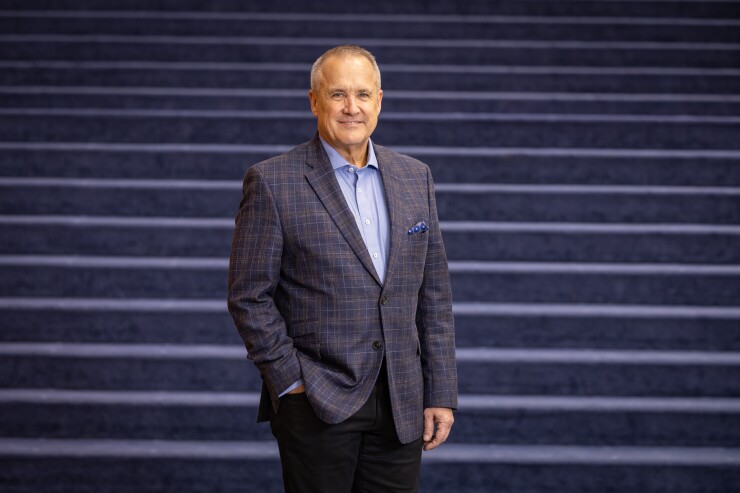A proposed rule from the Federal Communications Commission could have safety and soundness implications for credit unions, industry groups say, and time is running out for the agency to change its proposal.
Credit union trade groups are lobbying the FCC to amend a draft of its Declaratory Ruling and Third Further Notice of Proposed Rulemaking regarding conduct of telephone calls. The rule, which would limit how credit unions contact their members for business purposes, including the use of robocalls and autodialers, is on the agenda for the agency’s June 6 open meeting.

Credit unions have even gone so far as to reach out to the Consumer Financial Protection Bureau – which the industry frequently butts heads with – to enlist its help.
The FCC’s ruling will “further erode credit unions’ ability to relay information on and implement consumer protections regarding fraud, privacy and account activity,” Jim Nussle, president and CEO of the Credit Union National Association, wrote in a recent letter to CFPB Director Kathy Kraninger. “As a result, the proposed declaratory ruling could not only potentially endanger consumers’ financial well-being, but also safe and sound credit union practices.”

Nussle added that while FCC Chairman Ajit Pai had “well-meaning intentions,” the proposed actions will “run directly counter” to the encouragement the CFPB and other regulators have given financial institutions to use “modern” communication methods to provide members with important and time-sensitive account information.
Compounding the issue, said Ann Kossachev, director of regulatory affairs for the National Association of Federally-Insured Credit Unions, is the Senate is considering multiple efforts to curb robocalls. She said most of these bills relate to the Telephone Consumer Protection Act because there are efforts to change the definition of what is an autodialer.
“There seems to be conflation between robocalls and auto-dialed calls,” she said. “People are using ‘robocalls’ to include all calls, even calls that consumers want because they are informational or helpful.”

Kossachev said NAFCU supports all efforts to target and eliminate illegal calls that are designed to harm consumers, but the trade group wants to let credit unions send low-balance alerts, fraud alerts, data breach alerts and other alerts about their accounts. She noted there are CFPB rules requiring calls be made to delinquent mortgage borrowers within a certain number of days. However, CUs need prior, expressed consent to call a mobile phone, which is difficult to obtain if the member did not give that consent from the onset.
“It is unfortunate that all calls made using automated technology are being painted in a negative light,” Kossachev said, adding there is a “legitimate concern” communications are going to be erroneously blocked by service providers if the order goes through as is.
“We want to make sure there is a system in place for credit unions or other legitimate callers to issue a challenge if their calls are being blocked by service providers,” she said.
CUNA’s Nussle concurred, noting CUs have been “hampered” by the FCC’s 2015 TCPA Omnibus Declaratory Ruling and Order that included an “overly broad” definition of an autodialer.

“This definition has rendered any telephonic device more complicated than a rotary dial telephone to fit the definition of an autodialer,” Nussle argued. As a result, he said, many CUs have had to retain third parties to manually dial calls to members at “significant and otherwise unnecessary expense.”
CUNA supports efforts to reduce illegal robocalls, Nussle said, but it has “significant” concerns that the action the FCC intends to take is “overly broad” and could have a “significant adverse impact” on credit unions’ and other financial service providers’ ability to communicate with their members and customers.
Finding the right fix
While the National Association of State Credit Union Supervisors isn’t lobbying the FCC, it is closely monitoring the proceedings.
“Credit union regulators are concerned about legislation affecting credit union safety and soundness because they cannot make calls to borrowers if they are late on a payment or if there is a data breach,” said NASCUS President and CEO Lucy Ito. “Credit union supervisors want credit unions to be able to contact members. The way the law is written right now, it is more likely to penalize legitimate businesses than the illegitimate businesses that are part of these abusive calls.”
Ito said she was “encouraged” to hear FCC Commissioner Pai said it does not make sense for credit unions not to be able to contact their members. She said her hope is rather than a legislative fix, the FCC can address the issue through rulemaking.
“That would be better than trying to get something through Congress and have the FCC make rules after,” Ito assessed. “The FCC has shown a capacity to understand what affects credit unions, and I believe credit unions will be more successful in getting what they want if others that have legitimate business calls to make, including banks and other lenders, also chime in.”
Kossachev said there continues to be a rise in class action litigation related to TCPA, and there is disagreement between courts regarding autodialers or automatic phone dialing.
“It is very confusing, because different states now have different standards, so how does a business avoid a potentially costly lawsuit under the TCPA?” she asked. “We are waiting patiently for the FCC to issue a new order, which will re-explain what an autodialer means under the TCPA, because it is not defined in the statute.”





